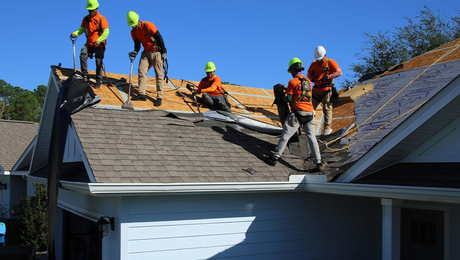I’m doing some work with PVC and have a few questions I hope to have some insight/ feedback on:
Q: gray vs. white PVC: my understanding is gray has UV inhibitors, but in cases where it’s buried why would that matter? (Understandably it’s a good way to tell if you’re dealing with water or electrical conduit but aside from that reason.)
Q: I have rec’d dubious answers at local hardware stores to my question about the differences in glues, e.g. I’ve heard to use gray glue with gray pipe (VOC content and body-thickness aside). The best I can tell is there’s differences in body (aka thickness), cure time (e.g. Red Hot) and ability to handle exposure to moisture during curing (e.g. Rain’N’Shine). Can anyone shed additional light on this subject?
Q: What are the pros and cons of ABS vs. PVC for waste lines? Why would someone choose one over the other?
Thanks in advance.
David















Replies
Gray doesn't nessasarily mean conduit---- sch 80 pvc is gray too. As far as UV inhibitors go I've seen gray & white "bleach" in the sun & become brittle.
I use both Christy's red hot & Rain or shine, I like them both. I use purple primer before any glue.
PVC vs ABS , price & availabilty are usually the two factors between them, although some places say ABS isn't legal---- I have never seen that in writing though.
PVC is quieter than ABS.
ABS is more flexable.
I fear no man & only one GOD. Me
ABS vs PVC... price...
don't mix any of these three components...
conduit, potenial water or DWV in the same comparitive question....
what is the plan or what are you trying to do???
Life is not a journey to the grave with the intention of arriving safely in a pretty and well preserved body, but rather to skid in broadside, thoroughly used up, totally worn out, and loudly proclaiming
WOW!!! What a Ride!
Forget the primal scream, just ROAR!!!
In response to your q re: what I am trying to do (I understand knowing that often allows for a more thoughful and incisive response):1) Running water lines _and_ conduit. Hence the Q why am I burying two different materials -other than for distinction- if the primary difference is UV related. (And I don't even want to intimate that I'm considering conduit for water (I'm not) since I read some long posts regarding that -bad- idea ;) )2) Q on glues and PVC vs. ABS - I've worked with them all, I just have an inquisitive mind and am always seeking to better understand what I'm working with and why (aka the pros and cons).Thanks also to plumbill, good answers though I'd like to know what you mean by 'more flexible' as in physically, or more fitting options, or...? thanks.
Edited 5/7/2007 1:42 am ET by peedee
flexible as in physical...different bodied cements are rated for different pipe diameters.. says so on the can..Life is not a journey to the grave with the intention of arriving safely in a pretty and well preserved body, but rather to skid in broadside, thoroughly used up, totally worn out, and loudly proclaiming<!----><!----><!---->
WOW!!! What a Ride!Forget the primal scream, just ROAR!!!
It's been my experience that there are more, odd or unusual fittings available for pvc than there are for abs.
ABS is like Plumbill said more flexible, but if left out in the hot sun for a day or two it can sag and take on this shape, then it gets difficult to do a nice job with crooked pipe.
I've heard that ABS was quieter, because of the foam core, but I have not tested it.
ABS doesn't require a primer and is less likely to creep out of a fitting.
I use both, but I would rather not mix then on the same job.
PVC for water lines has no rating for hot water.
Purple primer is required here locally, so the inspector can tell if the pvc was primed.
I use Oatey in the green can medium body for rough in's.